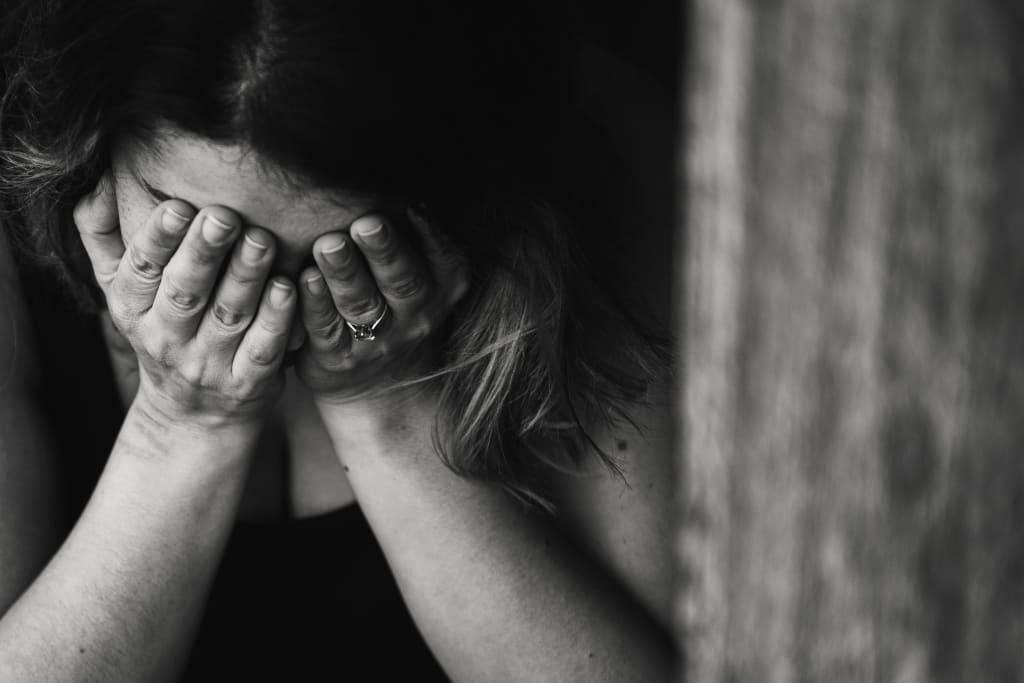
My grandfather once told me that the best way to avoid jolting awake in panic in the middle of the night is to "take a dump before you go to bed." As the king of homeopathic remedies, I believed him! But what about those of us who break down in panic in the light of day? Emptying your bowels can only do so much for a person! So, I have compiled this list to help those of you who—much like myself—see a panic attack on the horizon and begin to panic even harder. These simple steps will help bring you out of a state of panic, and into the present moment, allowing you to regain control of your consciousness and focus on living your life to the fullest.
1. Find One Item for All Five Senses
During a panic attack, we often feel that we have lost touch with our bodies, that some of our senses are heightened, while others are suppressed. In order to return to a state of balance, we must first balance the senses. Doing so is easy!
First, find something to touch. An item with a distinct texture works best for this. I like to feel carpet, running my hands over the fibers, feeling its coarse texture beneath my toes. Close your eyes, really feel.
Next, find something to smell. In instances of anxiety, I find it best to smell really powerful scents. A few of the most effective scents for me include rubbing alcohol (only a whiff!), lemon, lavender, or perfume that can be associated with a positive experience (i.e. partner's perfume or cologne). Again, close your eyes and focus on the smell. Before moving on to the next sense, remember what the texture felt like on your fingers and toes. Smell the scent again and harmonize the senses of touch and smell.
Then, connect to your sense of hearing. Turn off any music that may be playing, the television, machinery, and allow the sounds of the world around you to come to you. What do you hear? Birds chirping? Distant voices? The wind in the trees? Really connect with this sound and allow it to take you out of your mind and into your surroundings. Close your eyes and utilize these sounds to paint an image of what the room around you must look like. What does the room feel like? What does it smell like? Just visualize and listen.
Now, open your eyes and focus on your surroundings. What do you see? Sometimes sight can be our most overwhelming sense, alongside sound. But don't be afraid; just observe. From a non-judgmental place, view your surroundings. Find seven things and list them. For example, if you are in your living room, you may see a couch, couch pillows, chair, lamp, television, wall outlets, and light switch. Just visualize.
Finally, connect with your sense of taste. Pop a breath mint in your mouth, bite a lemon, lick a dab of hot sauce. Powerful tastes are most likely to jolt you back into your senses so don't be afraid to make a bold move by tasting something you may not necessarily enjoy.
This method has proven useful for myself many, many times. And although it can be used during moments of social anxiety, people might look at you funny if you drop to the floor and start rubbing the carpet and sniffing lemons. So, in cases of social anxiety, it may be best to use one of the following methods instead.
2. Count Your Breaths
This is my favorite method to use in cases of social panic because it is discreet yet effective. It is especially effective if you have all ready entered a full blown panic attack and have begun to experience tingling in your extremities. This tingling is caused by the exhalation of more carbon dioxide than your body can produce. This is also the cause of what I call "bad botox face" where the muscles in your face and extremities begin to tighten and freeze. This can be extremely frightening, but is easily remedied and/or prevented by the following exercise. This is not one of those "focus on your breathing" methods, because often times focusing on our breathing can actually send us further into panic mode. Instead, focus on the counting part of this exercise. With your next breath in, count "one." On the following exhale, count "two." In, "three," out, "four," and so on until you reach ten total breaths. When you reach the number ten, start over. Inhale, "one," exhale, "two," inhale, "three," exhale, "four." Again, don't focus on the breaths so much as the number. Think of it as labeling each breath. You will eventually find that, without even thinking about it, your breaths have begun to slow, and the tingling in your extremities is fading or has faded completely. Your muscles are more relaxed and you are able to carry on with your day.
3. Work It Out
I discovered this method during an awful panic attack in which my body was restless and I felt this horrible anxious feeling in the pit of my stomach. My grandfather was onto something when he said that "taking a dump" will relieve anxiety. Our abdomen is full of vital organs, which secrete hormones and other chemicals and is therefore thriving with energy. For this reason, the abdomen and its organs have been recognized by modern medicine as well ancient Ayurvedic teachings as the second brain. It is our source of intuition, anxiety, and sympathetic and parasympathetic nervous systems (aka "fight or flight" and "rest and digest" responses). So, when I began to feel this restless anxiety that eventually sent me into a panic attack, it seemed almost intuitive that I fell to the ground and began doing sit-ups. The pent-up energy that was being stored in my abdomen was able to disperse to other areas of my body when I released it through physical activity.
Sometimes, panic and anxiety are simply signals from our body saying, "I have all this energy and it's not being spent! Get moving!" So, if you are having a panic attack in a space where you are able to do some physical activity, move! Shake out your arms and legs, tense your muscles and release them, do some sit-ups or push-ups, go for a walk or a jog. Get rid of some of that excess, pent-up energy.
4. Distract Yourself
Now and again, the only way to relieve yourself from the throes of anxiety, is to distract yourself. I personally find it helpful to do something with my hands, whether it be drawing, painting, coloring, gardening, punching a punching bag, cooking, or even washing dishes. Being focused on something other than fear, other than the body, other than anxiety, can be tremendously helpful in stopping a panic attack dead in its tracks. There are also more passive ways of distracting oneself including watching non-stressful television. Watch a sitcom and laugh each time the audience does. For some people, reading a book may be helpful. However, I have found that rapid eye movement can cause the panic attack to grow rather than subside, so it is better to stick to passive activities in which you are able to completely relax the head, neck, and eyes.
5. Lifestyle Changes
This method is more of a preventative measure that can reduce and potentially eliminate panic attacks. Some lifestyle changes that can reduce anxiety include eliminating caffeine from your diet, or switching from coffee to tea. For individuals who naturally become anxious or begin to panic when overly-stimulated, caffeine is only going to make the problem worse. It can be difficult to kick the habit of your morning coffee, but it really does make a huge difference. It can also be helpful to observe where you tend to experience the most anxiety and panic. Are you at home or in the office? In large group settings, or small group settings? Get to know your anxiety. You know what they say, keep your friends close and your enemies closer. If you are having anxiety at home, perhaps decluttering and enhancing the atmosphere to be more conducive to a peaceful environment would be helpful. If you find yourself panicking in crowds, maybe you should re-evaluate if you really need to be in that crowd. For some people, anxiety is the result of a combination of lifestyle issues and brain chemistry or hormone imbalances. If you have done all that you can do to reduce your anxiety, to kick your panic attacks in the butt, perhaps it is time to see a psychiatrist. Although I cannot endorse the use of pharmaceutical drugs to heal your anxiety, they can certainly help. Medication can really help individuals suffering from social anxiety and agoraphobia, and can truly enhance a person's standard of living.
As someone who has struggled with anxiety for years, I can truly testify to the fact that these methods WILL help reduce your anxiety and stop a panic attack dead in its tracks. I hope you have found these tools useful and would love to hear your success stories, so please feel free to leave a testimonial! If someone you know is struggling with anxiety and panic attacks, please share this article with them so they can begin living a happier and healthier life alongside you! This information should not be used in place of professional medical help! I am a human helping my fellow humans with what I've learned as a human! But I am not a human with a doctorate in psychology, psychiatry, or neuroscience, so please reach out to a doctor should you feel it necessary.
About the Creator
Jenna Cee
Hi there! I'm Jenna Cee and I am a twenty-three year old transgender woman coming to you from Hollywood in Los Angeles, California. My ultimate mission in life is to share my story, guiding others through the struggles I went through alone.






Comments
There are no comments for this story
Be the first to respond and start the conversation.